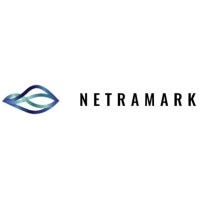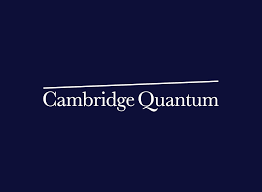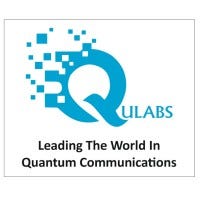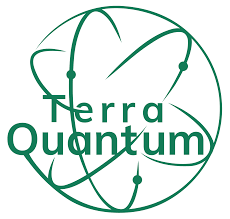Quantum Machine Learning Overview
Over the last half a decade or so, quantum computers have seen a marked improvement in power and capability. This upgrade in performance is now being implemented in hard tech verticals, such as Machine Learning (ML). In Deep Learning (DL), a branch of Machine Learning where there are very large neural networks, one area that this can be executed is in solving classification problems.
Now, it is common knowledge that these DL networks can be achieved using classical computers by leveraging parallelization techniques. Therefore, using a quantum computer for this kind of task is simply not efficient.
However, Quantum Machine Learning (QML) — the technique of integrating quantum algorithms within Machine Learning programs – comes into its own with hard Machine Learning problems like probabilistic models over graph structures, a task where QPUs win the day.
The Quantum Insider will now give you a sense of some of the Quantum Machine Learning companies developing products and solutions to supply quantum industry. As usual, the list — taken from our proprietary data platform, the leading provider of information, data and insights on Quantum Technologies on the market — is non-exhaustive. If we’ve missed any of the budding ML companies out in this space, please let us know so we can add them to our platform.

6 Quantum Machine Learning Companies
1. Quantica Computacao

Founded in 2018 by Bhagvan Kommadi and Harsh Patel and based in Chennai, India, Quantica Computacao is a quantum computing company whose primary objective is to develop a software platform to utilize future quantum computer technology. Along with developing essential software tools, algorithms and components that will help the banking and financial institutions to develop quantum-proof tools and techniques to facilitate data security and encryption, quantum machine learning tools for investment banking and stock exchange, it is working on Quantum Simulation Algorithms for pharmaceutical companies to develop new and effective drugs.
The company’s proprietary proof-of-concept quantum-specific machine learning and AI algorithms will be able to run on future quantum computers and supply the path to new research.
Visit company’s profile page.
2. Netramark (acquired by Nurosene)

Acquired by Nurosene — a health tech company focused on building a generation of better brains — in 2021, NetraMark company uses classical and quantum machine learning to help pharmaceutical companies.
Founded in 2016 by Joseph Geraci, a data scientist, mathematician, medical scientist, and, of course, a Quantum Machine Learning entrepreneur, the Toronto-based company’s suite of products includes NetraAI, an interactive augmented intelligence platform that supports the intersection of human and machine intelligence, learning beyond the labels given to it, leveraging both the power of supervised and unsupervised learning.
Visit company’s profile page.
3. Cambridge Quantum (now part of Quantinuum)


Now part of Quantinuum after the merger with Honeywell Quantum Solutions last year, Cambridge Quantum was founded in 2014 by Ilyas Khan. A quantum computing software and algorithms company, its focus is in the areas of quantum chemistry, quantum machine learning, quantum natural language processing and quantum cybersecurity.
Collaborating with its industrial, academic and governmental partners, Cambridge Quantum designs and engineers novel, application-motivated Quantum Machine Learning algorithms. To date, it has worked with a wealth of the world’s largest organizations to deploy purpose-built, Quantum Machine Learning algorithms across industries such as finance, healthcare, pharma, energy and logistics. Its resource-efficient and cross-platform capabilities enable it to extract the most from quantum devices today, propelling the company ever closer to its goal of quantum advantage.
Visit company’s profile page.
4. Qulabs

Another quantum startup out of the Indian subcontinent, Qulabs was founded in 2018 Nixon Patel and is building quantum tools, APIs and AI tools for various applications.
The Hyderabad-based startup’s solutions provide easy to use interface for leveraging classical-quantum algorithms. This classical-quantum hybrid approach is required in advance use cases to obtain 1000x speed up in optimization workloads in various applications involving combinatorial optimization problems.
Visit company’s profile page.
5. Zapata Computing

Based in Boston, Massachusetts and founded in 2017 by Christopher Savoie, Alan Aspuru-Guzik, Yudong Cao, Jhonathan Romero, Jonathan P. Olson, and Peter Johnson, Zapata Computing and its scientists help industry-leading companies understand — and capitalize on — the capabilities of quantum computing today, and the possibilities of quantum computing tomorrow.
With Fortune Global 1000 companies, the company is developing solutions for a wide range of industries including chemistry, logistics, finance, oil and gas, aviation, pharmaceuticals and materials. Zapata’s quantum platform Orquestra(R) combines a powerful software platform and quantum algorithm libraries to deliver real-world advances in computational power for applications — particularly in machine learning, optimization and chemistry. Orquestra enables users to compose quantum workflows and orchestrate their execution across classical and quantum technologies.
Workflows in Orquestra are particularly well-suited for running and managing complex quantum machine learning (QML) tasks due to their modular and extensible nature.
6. Terra Quantum

A Swiss-based company located in the municipality of Rorschach, Terra Quantum is a deep tech pioneer, developing revolutionary quantum applications to shape the technology of the future.
Founded in 2019 by Markus Pflitsch, the startup’s international team of experts brings together the best minds from science, academia and industry to address the most fundamental questions of quantum physics and their manifestations in the world around us.
In regards to Quantum Machine Learning, Terra Quantum is developing a neural network architecture for fast-evolving processes, using laser interferometry for the implementation of learning algorithms and, in addition to this, a “neurochip”. The end result will be a universal device with its own software for the monitoring and analysis of rapidly evolving processes.
Visit company’s profile page.
If you want to find out what’s new in the Industry, check out our latest quantum news.
















